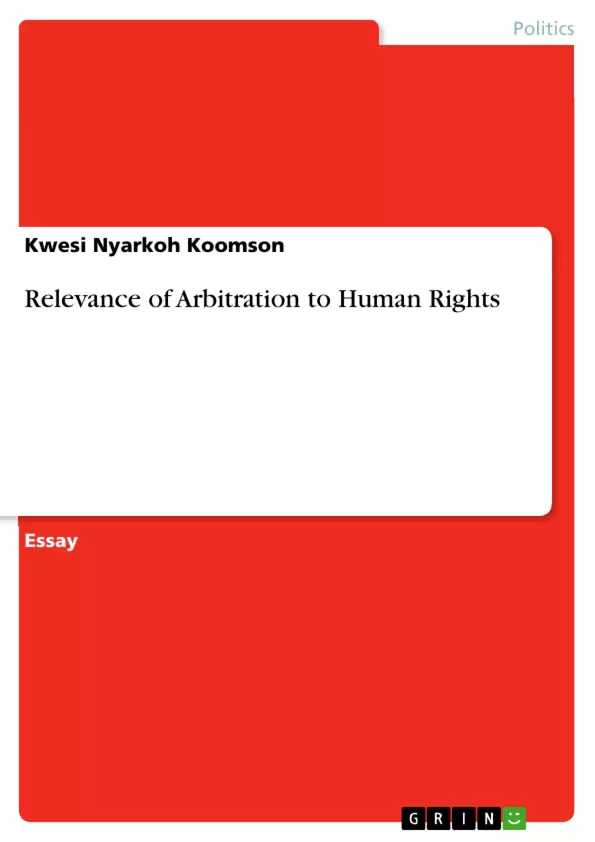Conflicts and disputes are normal and natural in everyday life. Conflict is not an event; it is a process. Human beings face conflicts always and everywhere, at all levels (Galtung 1996). How conflicts are managed is what makes the difference. A common way disputes the world over are resolved is through litigation. Litigation however is often characterized by delays and other debilitating activities which adversely affect the conflict resolution process and accentuates the popular legal maxim ‘justice delayed is justice denied’. Litigation is also thought to be relatively expensive and too elitist.
These undoubted flaws that surround litigation led to other means of conflicts resolution collectively termed Alternative Dispute Resolution or (ADR). The Legal Information Institute (LII, 2014) defines Alternative Dispute Resolution as any method of resolving disputes other than by litigation. Courts of competence jurisdiction could be directed to review the validity of Alternative Dispute Resolution methods, but they will hardly overturn decisions and awards proposed by ADR if the disputing parties formed a valid contract to abide by them. ADR methods or types include mediation, negotiation, conciliation, collaborative law and arbitration. ADR is arguably a much better option as all stakeholders in a conflict can resolve their own differences by working together to come up with an agreement that satisfies all parties involved.
This write-up will however focus on one of the popular modes of ADR, called Arbitration. The write-up will look at a brief history of arbitration, the meaning of the term arbitration, its features and characteristics, types and forms, merits and demerits and most importantly how arbitration skills could be utilized to address human rights-related disputes, conflicts and matters.
Inhaltsverzeichnis (Table of Contents)
- Introduction
- History of Arbitration
- What is Arbitration?
- Types and forms of Arbitration
- Features and Characteristics of Arbitration
- Relevance of Arbitration skills to Human rights and the human rights officer
- Conclusion
Zielsetzung und Themenschwerpunkte (Objectives and Key Themes)
This paper aims to explore the relevance of arbitration skills in resolving human rights disputes. It examines the history, meaning, features, and types of arbitration, highlighting its role as an alternative dispute resolution (ADR) method.
- The historical development of arbitration
- The nature and characteristics of arbitration
- Different types and forms of arbitration
- The role of arbitration in human rights disputes
- The relevance of arbitration skills for human rights officers
Zusammenfassung der Kapitel (Chapter Summaries)
- Introduction: This chapter introduces the concept of conflict resolution and highlights the limitations of traditional litigation, setting the stage for exploring alternative methods like arbitration.
- History of Arbitration: This chapter traces the historical development of arbitration, from ancient practices to the modern era, showcasing its evolution as a formal dispute resolution mechanism.
- What is Arbitration?: This chapter defines arbitration as a process of dispute resolution involving a neutral third party (arbitrator) who renders a binding decision. It outlines the key features and advantages of arbitration over traditional litigation.
- Types and forms of Arbitration: This chapter explores different types of arbitration, including ad hoc, institutional, mandatory, and voluntary arbitration. It discusses the advantages and disadvantages of each type.
- Features and Characteristics of Arbitration: This chapter delves into the key characteristics of arbitration, emphasizing its consensual nature, neutrality, confidentiality, and binding decisions.
Schlüsselwörter (Keywords)
The paper focuses on the key concepts of arbitration, alternative dispute resolution (ADR), human rights, and the role of human rights officers. It explores the various features and types of arbitration, highlighting its relevance in resolving human rights-related disputes.
Frequently Asked Questions
What is Alternative Dispute Resolution (ADR)?
ADR refers to any method of resolving disputes outside of traditional courtroom litigation, such as mediation, negotiation, or arbitration.
How does arbitration differ from litigation?
Arbitration is typically faster, less expensive, and more private than litigation. It involves a neutral third party making a binding decision based on a contract between the parties.
Why is arbitration relevant to human rights?
Arbitration skills can be used to resolve human rights-related conflicts more efficiently, ensuring that "justice delayed is not justice denied."
What are the main types of arbitration?
Common types include ad hoc arbitration (set up for a specific case) and institutional arbitration (managed by a formal organization).
What are the key characteristics of arbitration?
Key features include the neutrality of the arbitrator, confidentiality of the process, and the binding nature of the final award.
What are the merits of using arbitration?
Merits include flexibility, the ability to choose an expert arbitrator, and the potential to maintain relationships between the disputing parties.
- Quote paper
- Kwesi Nyarkoh Koomson (Author), 2016, Relevance of Arbitration to Human Rights, Munich, GRIN Verlag, https://www.grin.com/document/338883



